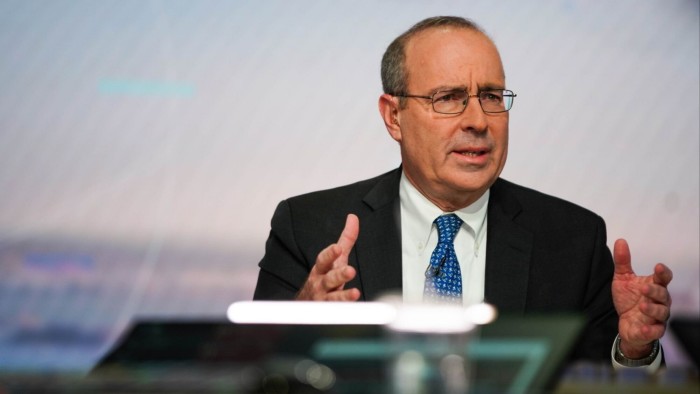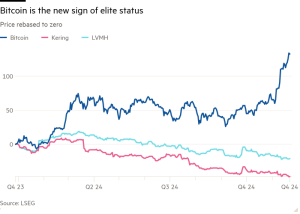US is vulnerable to inflation shocks, top Fed official warns

Unlock the White House Watch newsletter for free
Your guide to what the 2024 US election means for Washington and the world
A top Federal Reserve official has warned that the US is more vulnerable to inflationary shocks than in the past, as businesses brace for increased protectionism and an onslaught of new economic policies when Donald Trump returns to the White House.
Tom Barkin, president of the Richmond Fed, told the Financial Times that he expected inflation to continue dropping across the world’s largest economy, even though progress has plateaued, according to monthly data released by government agencies.
But he cautioned that businesses were passing on costs to consumers more readily than in the past — although to a much lesser extent than at the height of the coronavirus pandemic — which was having an impact on prices.
“We’re somewhat more vulnerable to cost shocks on the inflation side, whether they be wage-[related] or otherwise, than we might have been five years ago,” said Barkin, who is a voting member on the rate-setting Federal Open Market Committee this year.
The Richmond Fed president, who once was the chief risk officer at consulting giant McKinsey, also noted that businesses were “concerned” about the inflationary effects of the sweeping tariffs and plans to deport illegal immigrants that Trump touted on the campaign trail.
“I can see why the businesses think that,” Barkin said, but he noted that other Trump policies related to boosting domestic energy production “might be disinflationary”.
Many economists are also concerned that universal levies on US imports will reignite inflation, but the extent of the impact will depend on which policies are adopted and how they are implemented. They also warn that mass deportations could cause price rises while hindering growth, causing a stagflation shock.
Trump and his economic advisers reject these warnings and say that along with deregulation and tax cuts, their policies will make the economy strong while keeping inflation in check.
Barkin argued that the Fed should not preemptively adjust monetary policy ahead of possible changes in economic policy. “We shouldn’t try to solve it before it happens,” he said.
Fed officials have already cut interest rates twice this year and are debating whether to do so again at their final meeting in December. Chair Jay Powell last week reiterated that the central bank was not in a “hurry” to reduce rates to a level that constrains growth, given the underlying strength of the economy.
Traders in federal funds futures markets predict the odds of a quarter-point rate cut to 4.25-4.5 per cent are roughly even.
Barkin said he did not want to “prejudge December” but added that forthcoming rate decisions would depend on data, which currently suggests that the economy is “quite prosperous”.
“If you’ve got inflation staying above our target, that makes the case to be careful about reducing rates,” he said. “If you’ve got unemployment accelerating, that makes the case to be more forward-leaning.”
Barkin described the Fed’s recent policy moves as a “recalibration” and said questions about the pace of interest rate cuts would be more relevant once the central bank entered a “normalisation phase” and its policy settings were closer to a “neutral” level.
Speaking on Wednesday, Fed governor Michelle Bowman, who was the lone dissenter to the Fed’s decision to cut rates by a half-point in September, backed moving “cautiously” to bring interest rates down. Governor Lisa Cook also endorsed a gradual pace of cuts on Wednesday.
#vulnerable #inflation #shocks #top #Fed #official #warns




